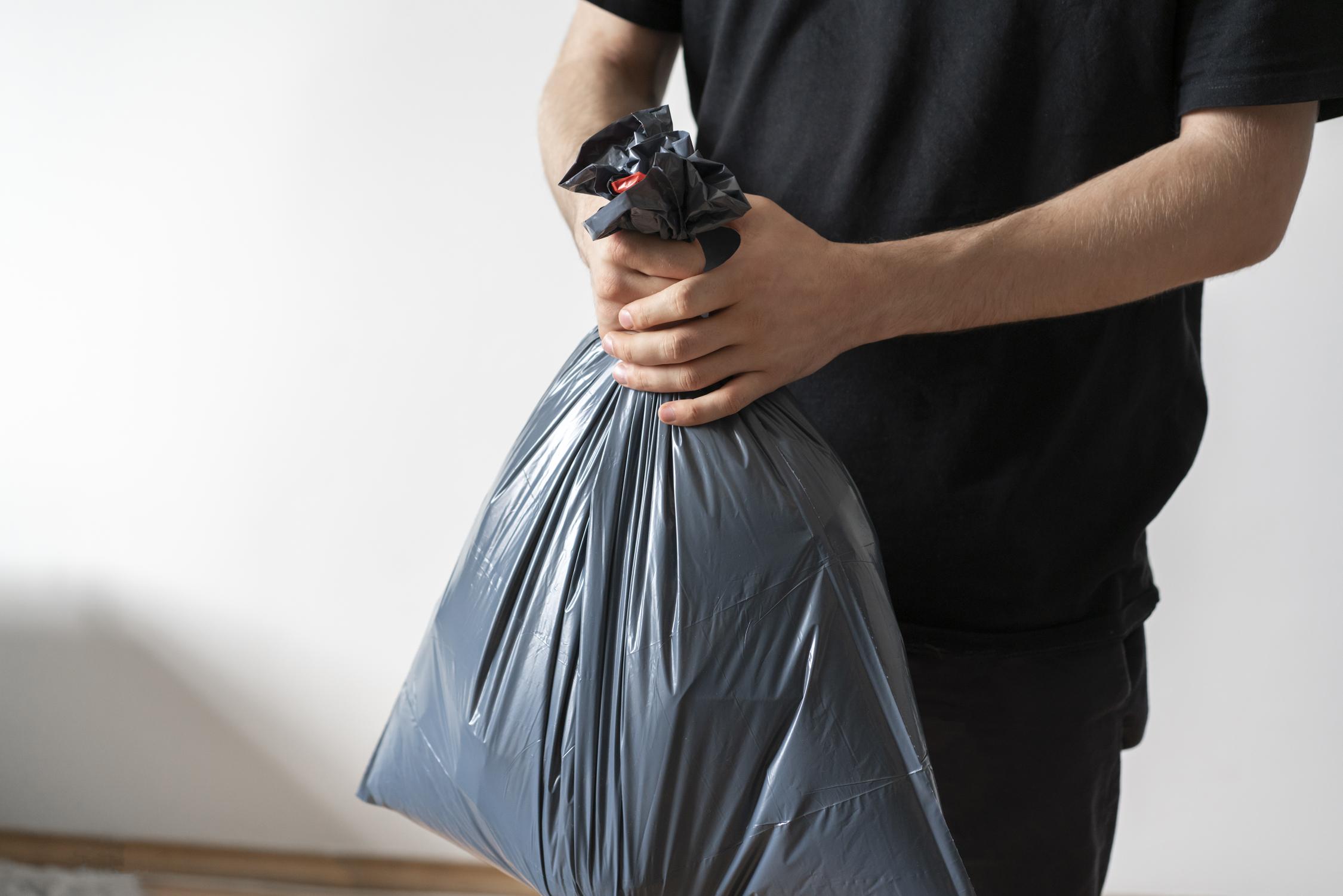The majority of commercial garbage bags are made of a low-density polyethylene plsatic. This is a lightweight and reasonably leak and tear resistant plastic. But they are also not very good for the environment because they take years and years to break down. How many years? Well we don’t know because garbage bags, invented by three Canadians in 1950, have only been around for 72 years. But scientific testing and analysis says 500 to 1000 years is probable.
So if you are like the growing number of consumers (and manufacturers) who believe it is time to make an effort to help our environment, what options do you have? Here’s where it gets tricky.
You basically have three options: Reusable, biodegradable and really biodegradable - compostable
1. Reusable
This is the least popular option because of the extra work involved. The bags themselves are made from recycled non-toxic materials and are extremely durable. The initial cost is expensive, but then you don't have to keep buying them. But they require washing after every use. Then there’s the issue of where do you dump it when it’s full? Ultimately, the only way this is going to work is if you recycle the plastics, glass, metal and paper; and keep all the wet messy food stuffs separate in a reusable bag. But this also assumes that you will have a compost heap onto which you can empty that messy bag. And if your messy bag contains toxic and non-compostable liquid messes which eliminates the compost heap for dumping it.??.. As you can see, although it is definitely eco-friendly, the impracticality of reusable bags pretty well guarantees that they will not gain widespread popularity

2. Biodegradable
The key elements necessary for biodegradation are air, moisture and sunlight (UV rays). But your biodegradable bags are destined to two places - a landfill/garbage dump or ‘say it isn’t so’ - the bottom of the sea. Excluding the bags on the surface of a landfill, all the others will never see the UV light of day, fresh air or moisture. So they will never break down. Not only that, but when plastic biodegradables biodegrade (the ones on the top of a dump), they emit methane, a huge contributor to the greenhouse gas effect. So while well-intentioned, biodegradable plastic garbage bags are anything but eco-friendly.
3. Compostable
Although considerably more expensive than your regular green garbage bag, compostable garbage bags are the only truly eco-friendly option, once you’ve factored in convenience and simplicity of use. Again, this method will require you to embrace a complete recycling program. Just throw all your organic waste into the compostable bag and once it is full, toss it onto a compost heap. The bag itself contains zero plastic and is made of plant starches, so that it, along with the contents inside, will totally biodegrade within 10-45 days while leaving no harmful residues.

The unfortunate fact is that unless you have a home and a compost heap, and are willing to take the extra time necessary to properly store and dispose of all your waste, there really is no practical way to eliminate your polyethylene, non-biodegradable garbage bags. Which leaves us with the inevitable conclusion. Recycle your plastics, glass, metal and paper and for your messy non-recyclable waste and for those of you who don’t have composting as an option, choose a line of garbage bags that at least provides you with all the different sizes and strengths you need to handle your garbage efficiently. Canada's leading wholesale garbage bags supplier, A1 Cash and Carry, offers wholesale garbage bags in different varieties and sizes.


